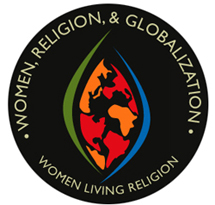
From November 12-14, the Women, Religion, and Globalization Project at Yale hosted the Women, Religion, and Globalization Conference, bringing women from around the world to examine the intersections of these three themes. The conference included panels on economics, security, peace-building, immigration, and representation and their relationships to women, religion and globalization. Speakers came from as far as Sri Lanka, Israel, and Morocco. The three days marked one of the first concentrated and collaborative efforts to examine the conjunction of these issues.
The conference, funded by The Henry Luce Foundation and the MacMillan Center, began with a keynote speech by Fatiha Layadi, a member of the Moroccan Parliament, journalist, and activist. She discussed opportunities and challenges for women in Morocco and the greater Arab world, and reminded the audience that with regard to women’s rights, “We must stay vigilant.” The following two days of panels were characterized by a wide range of topics and viewpoints, from a diverse selection of speakers. Radhika Coomaraswamy, UN Under-Secretary-General, Special Representative for Children and Armed Conflict, discussed the changing nature of conflict and its impact on women; Quentin Wodon, Program Manager of the Development Dialogue on Values and Ethics at the World Bank, provided data from the World Values Survey and discussed how the Bank is attempting to incorporate issues of faith and gender into their policies; and Minoo Moallem, University of California in Berkeley, discussed the ways in which images serve as visual codes related to gender, femininity, religion, and modernity. A number of Yale faculty, including Cheryl Doss, Laura Wexler, Sally Promey, Libby Wood, Inderpal Grewal, Patricia Pessar and Zareena Grewal, presented their work and served as respondents on the various panels.
The conference served as a catalyst for scholars and practitioners examining one, or perhaps two, of the core themes – women, religion, and globalization – to reflect on the ways in which the remaining themes might impact their work and shift their understanding of how to effectively promote change. As such, the conference was a manifestation of the Project’s goal to meaningfully explore the relationship between women and their faith, and political, economic, and social developments, locally, around the world, and in the larger context of international affairs. The Project’s hope is that the conference will stimulate continued conversation and debate, with the potential for breaking new ground in academia and the policy world.

